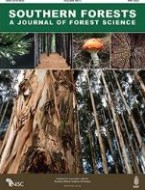A number of factors persist to constrain the non-timber forest products (NTFPs) market and, by extension, its potential to contribute meaningfully to livelihood development and poverty reduction objectives. To better utilise the potential of NTFPs, it is important to have a better understanding of the key factors governing the success and failure of NTFPs trade. This paper reports on the market constraints and socio-economic factors that influence trade in five top-priority NTFPs within the tropical lowland rainforests of south-west Nigeria. The NTFPs investigated were bush mango (Irvingia gabonensis), African walnut (Plukenetia conophora), chew-stick (Massularia acuminata), fever bark (Annickia chlorantha) and bush pepper (Piper guineense). Field data were collected in 10 villages located within and around Omo and Shasha forest reserves using a household questionnaire survey. The results showed that seasonality, poor transport, lack of storage facilities and market information were the four main constraints influencing marketing and trade in the NTFPs. In addition, the level of education, gender (sex), household income, ethnicity, distance to the market and access to roads significantly influenced market knowledge and information among households involved in the trade of NTFPs. There is need to improve on the limited source of NTFPs information, enhance skills for product transformation, build innovative storage facilities, and develop the process of domestication and integration in traditional land-use systems.

